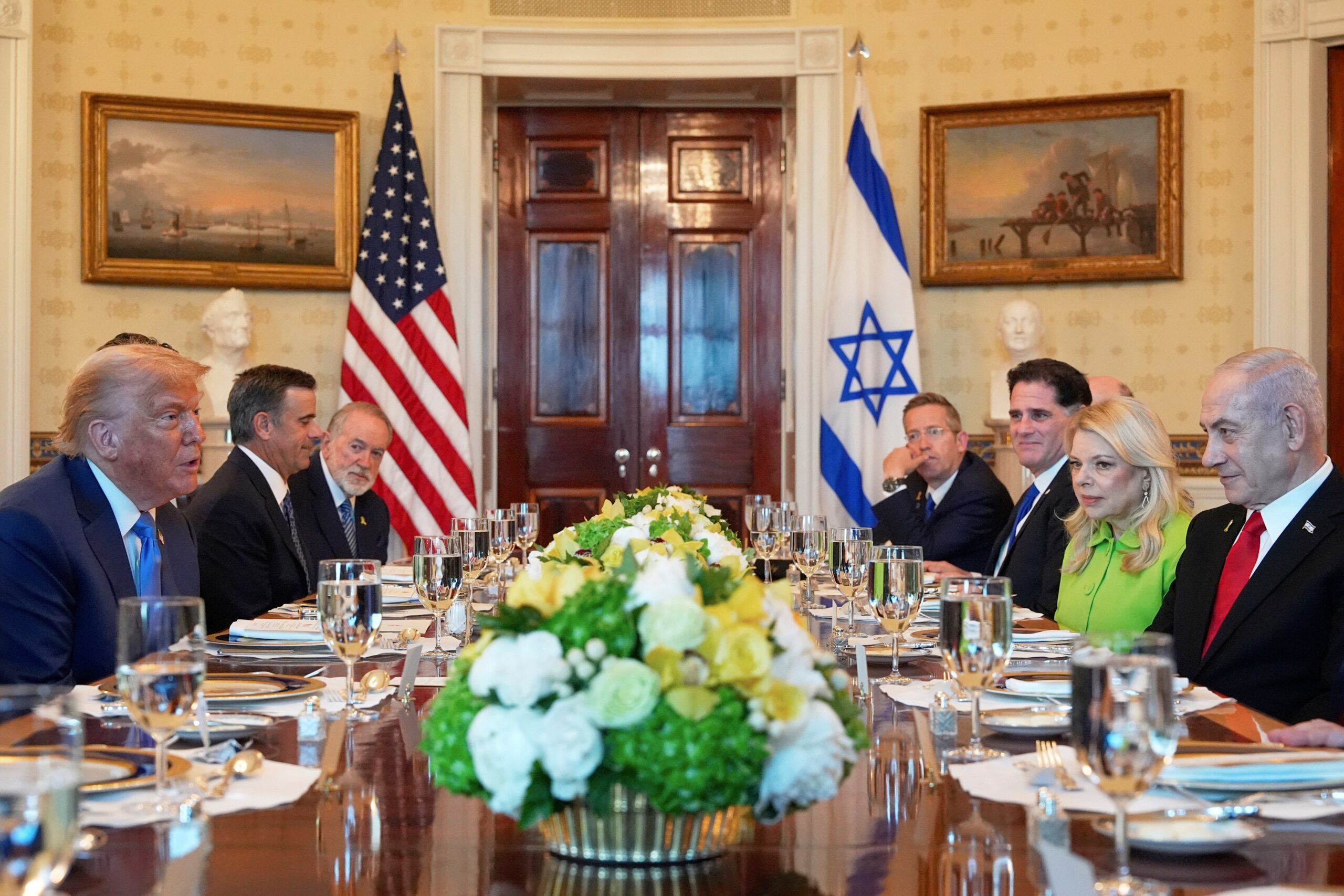WashingtonThe United States’ decision to end the ceasefire negotiations in Gaza this week casts doubt on one of President Donald Trump’s efforts to resolve international disputes.
The breakdown of negotiations to resolve the 21-monthTrump’s attempts to mediate deals for delicate disputes and complicated global challenges have stagnated, and the Israel-Hamas battle is the most recent setback.
Suggested Videos
The Republican president has made an effort to establish himself as a peacemaker despite just having been in office for six months. He has occasionally set lofty objectives that haven’t been met, such as his pledge to put an end to the continuing conflict in Ukraine prior to his inauguration.
Trump has stated that he is looking for agreements to prevent death and damage. However, he has also made it clear that he wants to win the Nobel Peace Prize, which has led some people who want to gain favor with Trump to suggest him for the esteemed honor.
Here is an overview of the current status of some of Trump’s attempts to reach agreements on security and peace.
Gaza
STATUS: Recent negotiations have yielded no significant advances.
THE BACKSTORY: On Thursday, Trump’s special envoy Steve Witkoff announced that the United States was returning its negotiating team from Qatar, where negotiations were taking place, to evaluate its next course of action. Although U.S. authorities did not provide specifics, Witkoff stated that the action was taken because Hamas was not acting in good faith in its efforts to achieve a truce.
Despite weeks of negotiations in Qatar and Israeli Prime Minister Benjamin Netanyahu’s visit to the White House earlier this month, no significant progress has been made. Although Witkoff stated that the United States will look into other options to return the captives home, U.S. officials did not respond to inquiries about what those alternatives might be.
In response to a question about what to do next, Trump told reporters on Friday that Hamas was not interested in reaching an agreement and that he believed they would be pursued.
Ukraine-Russia
STATUS: The conflict is still ongoing.
THE BACKSTORY: Even before taking the oath of office, Trump made several promises that he would end the conflict between Russia and Ukraine within 24 hours. That never happened, and there is still a long way to go before both parties can agree.
In recent months, Trump’s criticism of President Vladimir Putin has grown, and he is growing impatient with his ongoing onslaught in Ukraine. However, Trump has refused to support a bipartisan U.S. bill that would have imposed harsh sanctions on Russia, instead threatening to slap restrictions on its energy exports unless Russia agrees to a peace accord within 50 days. Due to the delay, Russia has had more time to intensify its offensive in Ukraine.
This week, Ukrainian President Volodymyr Zelenskyy reaffirmed his desire to meet with Putin in person in order to resolve the situation. The offer has been turned down by Russia, which claims the nations are too far away. Negotiations between lower-level Ukrainian and Russian officials took place in Istanbul on Wednesday, but no significant progress was reported.
Putin has stated that Ukraine should leave the four areas that Russia unlawfully acquired in September 2022 but did not completely seize as part of any peace agreement. He also wants Ukraine to accept military restrictions and drop its desire to join NATO. Those terms have been rejected by Ukraine and its Western backers.
Iran
STATUS: The open conflict has temporarily ended. There are still a lot of questions.
THE BACKSTORY: After the United States assisted Israel in attacking Iran’s nuclear program, Trump was able to mediate a tenuous ceasefire between Israel and Iran. Another unresolved issue for the Trump administration is the state of Iran’s nuclear program. Although Iran’s nuclear capabilities were severely damaged by recent U.S. and Israeli strikes, the United States and Iran have yet to reach a nuclear accord.
On Wednesday, an Iranian official stated that his nation was prepared to hold nuclear program negotiations with the United States, but only if Washington makes significant measures to restore confidence.
A different but similar negotiation path with Britain, France, and Germany—three of the remaining parties to a 2015 nuclear agreement from which Trump removed the United States during his first term—has been made possible by Iran. The four nations’ foreign ministers gathered in Istanbul on Friday to talk about European threats to reimpose sanctions on Iran in the event that an agreement to curtail its nuclear program by August is not reached.
Other disputes
Trump has assisted in negotiating accords in the months since he returned to office, even if he has failed to reach settlements in some of the most important disputes.
RWANDA-DEMOCRATIC REPUBLIC OF CONGO: He welcomed leaders of the Democratic Republic of the Congo and Rwanda to the White House in June to sign an agreement that was viewed as a significant step toward peace following decades of hostilities. Along with a pledge to stop hostilities and support for armed groups, the U.S.-brokered agreement highlights the sovereignty and territorial integrity of the two adjacent countries. Additionally, the agreement gives American businesses and the government access to vital minerals in the area.
INDIA-PAKISTAN: Trump’s administration stepped in in May after a string of military attacks incited longstanding nuclear rivals India and Pakistan to consider war. Following the U.S.-led negotiations, the countries decided to cease hostilities, and Trump promised to try to find a solution to the protracted conflict over the Indian-controlled Kashmir territory. Although the ceasefire has lasted, it’s unclear how far forward any long-term deal is. Trump and Pakistan’s army chief, Asim Munir, had lunch at the White House last month.
Israel and Syria: Trump’s special envoy to Syria, Tom Barrack, established a limited ceasefire agreement with Israel and Syria earlier this month after Israel engaged in combat between Syrian government forces and other armed groups. Barrack, the U.S. ambassador to Turkey, said he met with officials from both nations on Thursday in Paris to talk about de-escalation. “We achieved exactly that,” Barrack posted on social media, adding that both parties pledged to keep up the effort.
However, Trump was unprepared for Israel’s involvement, which halted his administration’s efforts to fully normalize diplomatic relations between the two nations.
___
New York was where Amiri reported.








